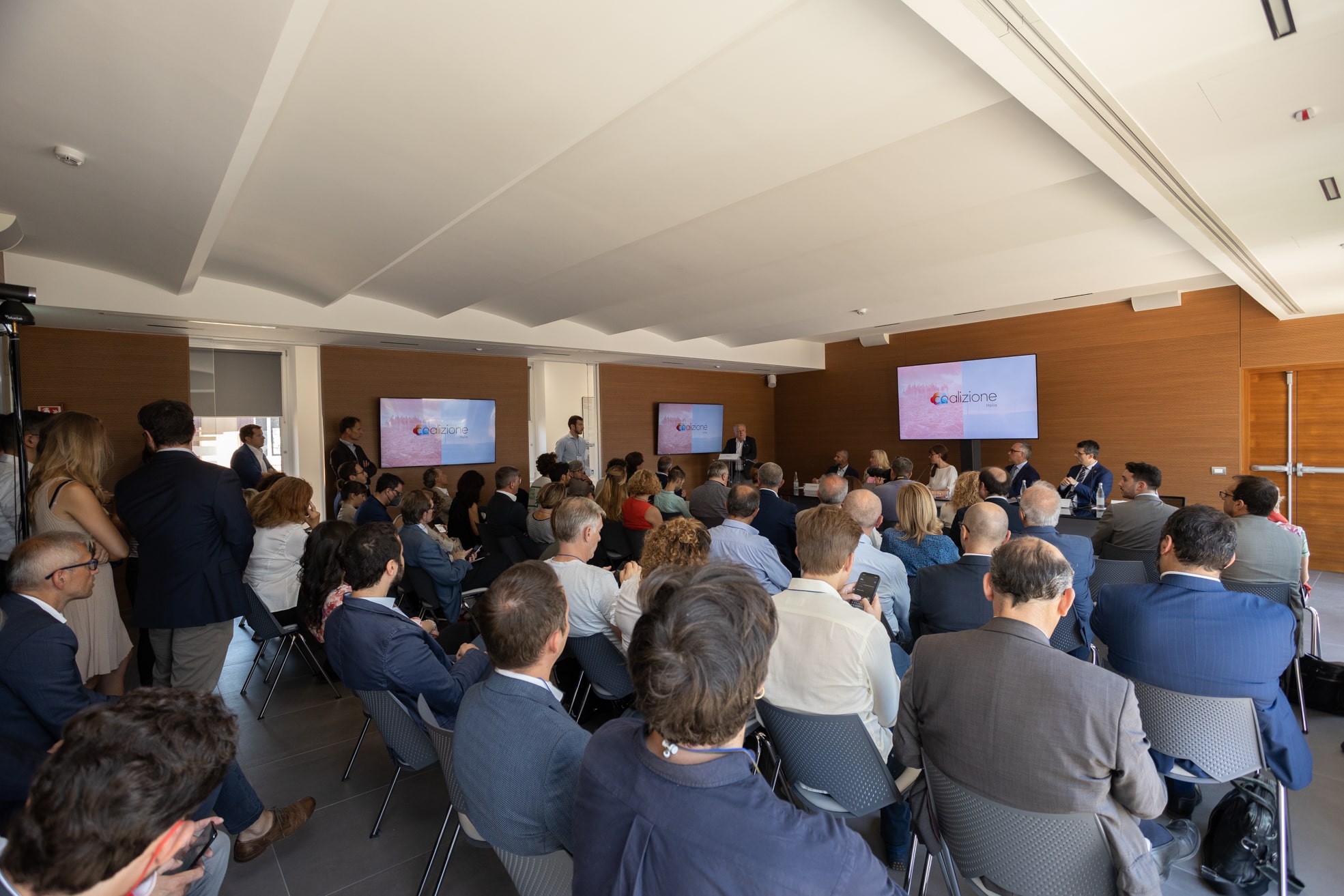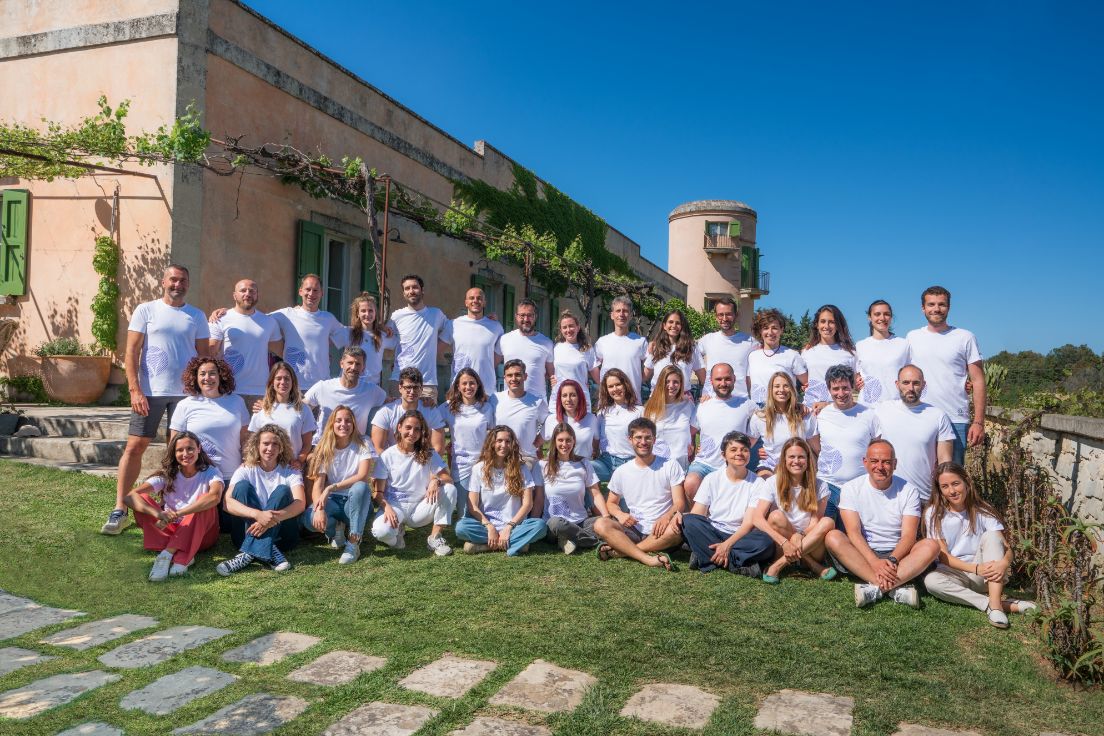Books, the masters of inner freedom: they open the cage of our ego and guide us in the ability to listen to others, understand ourselves, and be part of everything.
If everything were possible, beyond what already exists, how would a company need to be founded and run so that it could operate in a way that creates more value - not only for its shareholders, but also for the environment and society - than the amount it extracts in order to function?

This was the question we asked ourselves in 2012, the year when we decided to pool our life experience into the company that today bears the name NATIVA.
For years, we helped companies on their sustainable development journeys as the Italian branch of non-profit The Natural Step. We struggled to understand why what we did had to be described by a negation: "non" profit. It was obvious that a more progressive model needed to exist.
However, our certainty wavered when we presented the articles of association of our new company at the Chamber of Commerce. The official removed the part of the company purpose - the reason for which the company exists - where it was written that NATIVA aimed to create value for society and the environment, as well as sharing the profits among the partners.
That was the day when we discovered that, according to the Italian Civil Code - Art. 2247, "two or more people confer goods or services for the common exercise of an economic activity for the purpose of sharing the profits." This was the only purpose recognised by the law at the time.
And it was absolutely legitimate that in pursuing this aim one could cause damage to human beings and the planet.
We immediately felt the need to overcome this absurd limitation, and it was only after several attempts - we believe by wearing out the official - that we managed to have the articles of association approved as they were written: this is how we founded NATIVA, a company "for benefit", which had (and still has) the goal of accelerating the transition towards a regenerative economic paradigm.

To understand, just think of the Earth as a spaceship, equipped with limited resources, which the majority of companies today are extracting to transform into profit and funnel it into the hands of a few partners or shareholders. It is impossible for this type of system to work in the long term, and even a 6-year-old child understands this.
Instead, in a regenerative paradigm, the economic, social and environmental value that the company uses to function is lower than the economic, social and environmental value it creates.
This is the new equation that any entrepreneur or manager should clearly understand when they make their decisions.
It should guide all business plans and be taught as a priority in all the business schools on the planet.

After the founding of NATIVA, we wanted to do something so that other companies could officialise and pursue a goal, or, as Olivetti said, "a vocation, beyond the apparent rhythm of profits."
To do this, we took inspiration from the Benefit Corporations present in some states of the USA, and we worked to bring this legal structure to Italy. So, since 2016, Benefit Companies have existed in Italy, too: for-profit companies such as S.r.l.s or S.p.A.s that choose to evolve their legal status, officialising in their articles of association the purpose of creating value also for the environment and for people, and providing annual reports on the results achieved in terms of these issues.
It is a Copernican revolution in the concept of a company, because it changes the mandate that shareholders or partners assign to management: not only to divide up the profits, but also to create shared value, in the short and long term.

In 2013, we also became the first company to measure our own social and environmental impact with the B Impact Assessment, becoming the first certified B Corp in Italy.
Today, there are over 200 certified companies (6,000 in the world), and over 200,000 that measure their performance with B Lab's tools. These are all tools that allow for an incredible acceleration of companies' evolution towards a regenerative paradigm.
First of all, widespread awareness.
We have the fortune of speaking with people we call Legacy Leaders every day. These people have understood that sustainability is not just a fashion, a marketing tool or a marginal activity compared to the core business of a company. It is a matter of survival.
People who know how to answer the question "why does your company exist?", or want to be able to do so as soon as possible. And who have understood that they are part of an interdependent system, and that radical collaboration may be the only way to solve the environmental and social problems of our age.

There are already numerous examples of this type of collaboration.
Such as the work that permitted the creation of #UnlockEducation, a campaign for education on the topic of sustainability, designed and promoted by the Italian B Corps. This project has the ambition of finally creating the conditions for the first generation of humans to be born that are able to satisfy their own needs without compromising future generations' ability to do the same, making a web series on the fundamental aspects of sustainable development available to students, classes and schools by integrating it into school and university programmes.
And also CO2alizione Italia, an initiative that has led over eighty Italian companies - with a total of 50,000 workers and 30 billion euros of revenue - to raise the goal of climate neutrality to being a company purpose at the same level as profit, through a statutary addition. An innovative governance practice designed to guarantee the necessary focus from companies on one of the most important challenges in history, and achieve the goals for neutrality set by the European Union.

We know this, because we are first of all entrepreneurs, and because we speak daily with Legacy Leaders who want to leave a positive mark through their organisations.
When we measure the exponential increase in environmental and social disasters, we understand that the prosperity of a company is inseparably linked to that of the ecosystem it operates in, and it becomes clear that there is no choice but to evolve.
What we want to say to anyone who feels inspired by these words is: you are not alone. Thousands of entrepreneurs and managers have already chosen to embrace this vision.
The challenges are great, but today we have the vision, the awareness and the tools to face them.
So Embrace Radicality.
Dare to begin. Evolution and a positive impact will inevitably follow.
Images Credits:
© NATIVA
Books, the masters of inner freedom: they open the cage of our ego and guide us in the ability to listen to others, understand ourselves, and be part of everything.
The Green Drop Award recognises the films that best interpret the values of ecology. From chronicle, to exposé, to prophecy: all the force of environmental cinema.
